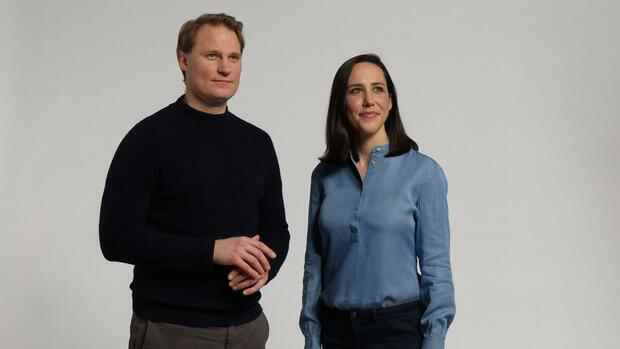Dusseldorf With his platform, Christian Albrecht offers a possible solution to an urgent problem in the health sector. Few clinics are digitized, the processes mostly outdated and slow with paper and fax. The co-founder of the start-up Avelios says that his software module enables diagnoses to be digitally documented quickly and efficiently. “We want to massively improve patient treatment,” says Albrecht.
He received a total of two million euros for his business idea, most of it from venture capitalist Revent. The Berlin Impact Fund specializes in topics like Avelios’s: on health, but also on climate, nutrition and social issues. Topics that many companies already have to define as sustainability goals in their reports.
“We see ourselves as pioneering a new category in impact funds,” said Revent co-founder Lauren Lentz. “Those start-ups that bring about more sustainability for the planet and society with innovative technologies will also be the ones that achieve the greatest economic success.” Lentz, co-founder Otto Birnbaum and anchor investor Benjamin Otto now have the final Closing reached and a total of 60 million euros collected – the target was 50 million.
Top jobs of the day
Find the best jobs now and
be notified by email.
In addition to corporations such as the Otto Group and Beiersdorf, other investors such as the European Investment Fund, the entrepreneurial family Wepa and serial investor and founder Verena Pausder are also involved.
“At the Otto Group, for decades we have attached great importance to combining economic success with social and ecological goals,” says Sebastian Klauke, CEO of the Otto Group. “We firmly believe that Revent’s approach can help solve societal, economic, social and environmental problems, and that profitability and community benefit are not in conflict.”
Impact investing increasingly popular
Impact investing is becoming more and more popular in Germany: In its market survey for 2020, the Forum Nachhaltige Geldanlagen determined a market volume of 16.6 billion euros in Germany. That’s 100 percent more than a year earlier.
Some investors and companies announced funds last year that look more at their social impact than just the return. The World Fund started with around 175 million euros and a new fund from the early-stage investor Speedinvest with 80 million euros. They invest according to strict criteria: A positive impact of the start-ups must be measurable apart from positive financial development.
Revent also attaches great importance to this. So far, the fund has invested in nine companies, says co-founder Lentz. In addition to the tech start-up for digitization in hospitals, this also includes Net Purpose from Great Britain, with which investors can measure the impact of their portfolios. Or Sylvera from Great Britain, which uses software to enable data-based evaluations of CO2 compensation projects. The fund is set up for ten years, and each start-up receives an investment of between around 200,000 and two million euros.
>> Read about this: These entrepreneurs want to change the world – their chances are better than ever
However, Lentz says the fund only invests in about 10 out of every thousand startups they are in talks with. In a due diligence, Lentz first looks at the technology, has it assessed by experts and compares it with that of the competition. Similarly, it also measures the expected positive impact of start-ups. For example, she looks at how much carbon emissions the company can save, or measures how much time can be saved in the hospital.
A social scientist, Lentz holds degrees from Yale, Oxford and Harvard Universities and has worked with the United Nations. As a scientist, she has measured the impact of social interactions in several places around the world.
“I wanted to become an investor when I realized how quickly technology and entrepreneurship can transform change.” If you really want to make a difference, you have to start with early-stage financing for start-ups with a positive impact on society. Lentz is convinced that this could turn into “huge companies” in the future.
Be careful with only impact-focused investments
According to some experts, those who invest purely impact-driven should proceed cautiously. From the point of view of Barbara Scheck, Professor of Entrepreneurship at the Business School in Munich, it must be clearly formulated which exact investment goals a fund has and how exactly the impact measurement takes place. “Transparency is very important here,” she says. “Relying solely on data that companies report themselves is difficult.”
In order to be as sure as possible that a start-up will have the impact it promises, Lentz asks questions like: “How do you achieve your goals and why?” be able.
“The companies then give us their measurements every year, and we ask about them regularly.” In the end, says Lentz, however, early-stage investments are always risky. But in the impact area, the industry is still in its infancy, she analyses. This year she wants to invest in ten more new start-ups that work for a better world.
More: One of the largest climate funds in Europe starts – 350 million euros for sustainable start-ups
